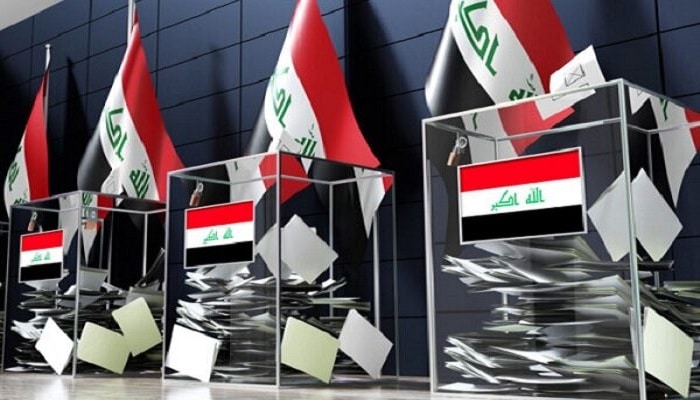PNN – Although the results of Iraq’s parliamentary elections indicate a new atmosphere in the country’s domestic politics, the final outcome of Iraq’s democratic process depends on consultations and the formation of future parliamentary coalitions.
According to the report of Pakistan News Network, over 12 million of the 21.4 million eligible voters participated in the elections, reflecting a 12.5 percent increase compared to the previous term, showing widespread public engagement in political participation.
Iraq’s Independent High Electoral Commission reported that the voter turnout reached 56.11 percent, and the elections were conducted in an orderly manner. The commission stated that the elections took place under normal conditions and in accordance with international standards, and that both the counting and manual recounting of votes were completed with fully consistent results. The preliminary results are not subject to appeal. In Baghdad, voter turnout reached 48.76 percent.
The commission noted that the announced results are “final and indisputable” as they are based on electronic counting and separation across all provinces.
Read more:
Examining the results of the Iraqi elections; how are the parliamentary seats distributed?
According to official data, the Coalition for Reconstruction and Development, led by Prime Minister Mohammed Shia Al-Sudani, secured 411,026 votes, leading the results in Baghdad. Following it, the Taqaddum Party, headed by Mohammed Al-Halbousi, received 284,109 votes, while the State of Law Coalition, led by Nouri Al-Maliki, placed third with 228,244 votes. The National State Forces Coalition ranked fourth with 138,805 votes, followed by the Sadiqun Movement in fifth, the Azm Coalition in sixth, the Badr Organization in seventh, and the Al-Siyadah Coalition in eighth, with the Al-Asas Coalition and the Huqooq Movement following.
In Najaf, the Coalition for Reconstruction and Development led the results, followed by the National State Forces Coalition and then the State of Law Coalition. In Karbala, the Reconstruction and Development Coalition came first, with the State of Law Coalition and the Ishraqat Kanun Coalition ranking third. In Qadisiyah, the Reconstruction and Development Coalition again ranked first, followed by the State of Law Coalition and then the Badr Organization.
In Salah al-Din, the Taqaddum Party led, followed by the Reconstruction and Development Coalition and the Azm Coalition in third. In Anbar, Taqaddum was first, Anbar Hewtna second, and Qimam third. In Nineveh, the Kurdistan Democratic Party (KDP) led, followed by Taqaddum and Reconstruction and Development. In Basra, the Tasmim Coalition came first, followed by Sadiqun and then Reconstruction and Development.
In Erbil, the KDP ranked first, the Patriotic Union of Kurdistan (PUK) second, and the Mawqif National Movement took the top three positions. In Duhok, the KDP led, followed by the Kurdistan Islamic Union and the Mawqif National Movement. In Sulaymaniyah, the PUK ranked first, followed by Mawqif National in second and the New Generation Party in third.
In Wasit, Wasit Ajmal ranked first, followed by the State of Law Coalition and Reconstruction and Development. In Muthanna, Reconstruction and Development came first, followed by the State of Law Coalition and Sadiqun. In Maysan, Reconstruction and Development, the Badr Organization, and State of Law secured the majority of votes. In Dhi Qar, Reconstruction and Development came first, with the State of Law Coalition and Sadiqun following. In Kirkuk, the PUK led, Taqaddum second, and the United Iraqi Turkmen Front third. In Babil, Reconstruction and Development came first, followed by Sadiqun and then the State of Law Coalition.
Regarding the formation of Iraq’s Prime Minister and President, the electoral commission stated that the results indicate a “new political balance on Iraq’s electoral map,” yet the parliamentary seats that determine the weight of different parties in parliament are not yet precisely finalized.
Another critical factor for appointing the heads of the three branches of power is the nature of negotiations among leading groups and the formation of parliamentary coalitions to reach the necessary quorum, enabling the leading coalition to nominate a candidate for Prime Minister. Therefore, the significance of Iraq’s election results will become clearer as political groups consult to form parliamentary blocs, which will determine the offices of the President, Prime Minister, and Parliament Speaker.

